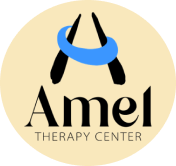Recovery is a journey that goes beyond simply overcoming challenges; it’s about finding meaning in the process. In the midst of setbacks and obstacles, you have the power to transform your experience and discover a deeper sense of purpose. It’s not just about getting back on your feet; it’s about embracing the opportunity for growth and self-discovery.
While recovery can be tough, it also presents an incredible chance to redefine who you are and what truly matters to you. By navigating this path, you’ll uncover resilience, strength, and a newfound appreciation for life. So, let’s explore how you can find profound meaning in your recovery journey.
Discovering Purpose After Addiction
Reflecting on your past experiences is an important step in finding meaning in recovery. Take the time to think about the lessons you have learned throughout your journey of addiction and recovery. What were the challenges you faced? How did you overcome them? What insights did you gain about yourself and your relationships? By looking back at these experiences, you can gain valuable wisdom that can guide you towards a more purposeful life.
Exploring New Activities and Hobbies
One way to find meaning in recovery is by exploring different activities and hobbies. Engaging in new experiences can help you discover what brings you joy and fulfillment. Try out various activities that interest you, whether it’s painting, hiking, cooking, or playing a musical instrument. Pay attention to how these activities make you feel and which ones resonate with you the most. Boldly step out of your comfort zone and be open to trying new things. You might just stumble upon a passion that gives your life a newfound purpose.
Seeking Guidance from a Mentor or Counselor
At times, finding meaning in recovery requires guidance from someone who can help you uncover your passions and potential. A mentor or counselor can provide support and insight as you navigate this journey of self-discovery. They can help you explore your interests, identify your strengths, and set goals that align with your values. Their expertise can be invaluable in helping you find direction and purpose in your life after addiction.
Strategies for Rebuilding Your Life
To find meaning in recovery, it’s important to establish a daily routine that includes self-care practices and positive habits. By creating structure in your day, you can cultivate a sense of stability and purpose. Start by setting aside dedicated time for activities that nourish your mind, body, and spirit. This may include exercise, meditation, journaling, or engaging in hobbies that bring you joy. Taking care of yourself is crucial during this time of rebuilding.
Break Down Big Goals
When you’re on the path to recovery, it’s common to have big goals and aspirations for your future. However, these goals can sometimes feel overwhelming and unattainable. To avoid feeling discouraged, break down your big goals into smaller, manageable tasks. By taking one step at a time, you can make progress toward your ultimate objectives. Celebrate each small achievement along the way, as they contribute to your overall growth and success.
Stay Open to New Opportunities
Rebuilding your life after addiction requires flexibility and adaptability. While it’s important to have a plan and set goals, it’s equally important to stay open to new opportunities that may arise along the way. Sometimes, unexpected doors open that lead to exciting possibilities. Be willing to explore different paths and be open-minded about trying new things. Embrace change and trust that it can lead to personal growth and fulfillment.
Setting and Achieving Goals
To find meaning in recovery, it is essential to set clear and specific goals that are meaningful to you. Take the time to reflect on what is important to you and what you want to achieve in your recovery journey. Whether it’s improving your physical health, rebuilding relationships, or pursuing a new career path, identifying these goals will give you direction and purpose.
Visualize Your Aspirations
Once you have defined your goals, utilize tools like journaling or vision boards to visualize your aspirations. Journaling allows you to express your thoughts and feelings, track progress, and gain insights into your journey. Writing down your goals and the steps needed to achieve them can help clarify your path forward. Creating a vision board with images and words that represent your goals can serve as a powerful visual reminder of what you are working towards.
Celebrate Small Victories
Recovery is a process that takes time and effort. Along the way, it’s important to celebrate small victories to stay motivated and track progress. Recognize and acknowledge even the smallest accomplishments, as they are stepping stones towards achieving your larger goals. Whether it’s completing a challenging task, reaching a milestone in your recovery, or overcoming an obstacle, take the time to pat yourself on the back and celebrate your achievements.
Building a Solid Support Network
To find meaning in your recovery journey, it’s crucial to surround yourself with individuals who uplift and encourage you. Your social support network plays a vital role in providing the emotional and practical support you need during this time. Whether it’s family members, friends, or support groups, having a strong support system can make a significant difference in your recovery.
Communicate Your Needs and Boundaries Effectively
In order to build a solid support network, it’s important to communicate your needs and boundaries effectively. Let those around you know what kind of support you require and how they can best assist you on your journey. By expressing your needs clearly, you enable others to provide the help that is most beneficial to you. Setting boundaries ensures that your recovery remains a priority and that you are not overwhelmed by the demands of others.
Join Support Groups or Online Communities
One effective way to expand your support system is by joining support groups or online communities. These platforms provide opportunities to connect with like-minded individuals who are going through similar experiences. Sharing your challenges, triumphs, and insights with others who can relate can be incredibly empowering and validating. Support groups and online communities also offer a space where you can learn from the experiences of others and gain valuable advice and guidance.
Embracing a Healthy Lifestyle
To find meaning in recovery, it is crucial to prioritize your physical and mental well-being. Regular exercise and nutritious meals can have a significant impact on your overall health. Engaging in physical activities not only improves your physical fitness but also releases endorphins, which are natural mood boosters. Exercise can help reduce symptoms of anxiety and depression, making you feel more positive and energized.
In addition to exercise, practicing mindfulness and stress-reducing techniques can greatly contribute to your recovery journey. Mindfulness involves being fully present in the moment and accepting your thoughts and feelings without judgment. This practice can help you manage stress, improve focus, and enhance emotional well-being. Consider incorporating activities such as meditation or yoga into your daily routine to promote relaxation and inner peace.
Engage in Activities that Promote Relaxation
Recovery can be a challenging process, and finding ways to relax and unwind from daily stressors is essential. Engaging in activities that promote relaxation can help you recharge and rejuvenate. Whether it’s taking a walk in nature, reading a book, listening to soothing music, or spending time with loved ones, find what brings you joy and helps you disconnect from the pressures of life.
Find Your Reason to Keep Going
In summary, finding meaning in recovery is a transformative journey that requires self-reflection, perseverance, and support. Discovering your purpose after addiction is the first step towards building a fulfilling life. By setting and achieving goals, you can regain a sense of control and accomplishment. Building a solid support network will provide the encouragement and accountability needed to stay on track. Embracing a healthy lifestyle, both physically and mentally, will enhance your overall well-being and contribute to your recovery journey.
Remember, recovery is a unique process for each individual, and it takes time. Be patient with yourself and celebrate even the smallest victories along the way. If you’re struggling to find meaning in your recovery, consider seeking professional help or joining support groups where you can connect with others who have gone through similar experiences. Amel Therapy Center offers professional support and resources to help you on your journey. Remember, you are not alone, and there is hope for a brighter future. Keep pushing forward, and embrace the opportunity to create a life filled with purpose and fulfillment.







